As an Amazon Associate I earn from qualifying purchases.
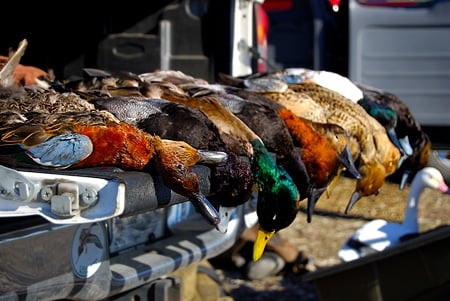
UPDATE: I want to thank everyone who has responded to this post, both below in the comments section and to me directly via email. More than one of your responses has been so moving it’s stopped me in my tracks. And Zane from Cleveland, your letter choked me up pretty bad. It is rare for me to write about such things; doing so feels like opening a vein in public. I am glad to know that I am not alone out there. Thank you.
I have been dealing a lot of death lately. I’ve hunted five of the past eight days, and have killed birds on each trip. My larder is filling, and Holly and I are eating well. Lots of duck, some pheasant and even a little of the venison I have left over from the 2010 season. That is the good side of all this, the side of hunting that most people can embrace. I hunt for a lot of reasons, but for me the endgame is always the table.
It is the journey to that table that can sometimes give people pause. What I do to put meat in my freezer is alien to most, anathema to some. In the past seven years, I can count on one hand the times I’ve had to buy meat for the home. This fact alone makes me an outlier, an anomaly. And that I am unashamed — proud, really — of this seems to cause a lot of folks I meet to look at me funny: I am a killer in their midst.
Not too long ago, I was at a book signing event for Hunt Gather Cook when a young woman approached me. She was very excited about foraging, and she had loved that section of my book. Then her face darkened. She told me she’d also read my section on hunting. “How can you enjoy killing so much? I just don’t understand it. You seem like such a nice person, too.” It took a few minutes for me to explain myself to her, and I am grateful that she listened. She left, I think, with a different opinion.
A few weeks later, I was at the University of Oregon talking about wild food to some students. When I mentioned hunting, I could feel the temperature in the room drop. It occurred to me that no one there was a hunter, nor were they close to any hunters. I called for a show of hands. One guy raised his. I asked him briefly about his hunting experience, and it was obvious that it had been traumatic for the poor kid. I let the topic slide and moved on to mushrooms.
When I was in Cambridge, Massachusetts, I spoke with more than 100 diners during my book dinner at the excellent restaurant Craigie on Main. Only four were hunters, although a few more wanted to start. Over the course of the night, I fielded weird question after weird question from diner after diner. Have I ever shot someone? Did I actually eat what I shot? Wasn’t I afraid of diseases? It was a stark show of ignorance. Not stupidity, mind you, just an utter lack of knowledge of what hunting is all about.
To be sure, these encounters were in college towns among a certain set of people. I had some book events, notably those in Montana, Pittsburgh and Austin, where most everyone who attended either hunted or was at least familiar with it. And in most places I could be assured of a healthy smattering of fellow hook-and-bullet types or farmers, who are equally familiar with the death of animals.
But the fact remains: Most people reading this have never killed anything larger than an insect, and among those who have it’s usually a been fish, or an accident — like running over someone’s dog. Most people have no idea what it’s like to take the life of another creature, let alone why someone would actively seek to do so. Let me try to explain to you the way I did to my young foraging friend on book tour. Let me tell you what it means to kill, at least for me.
To deal death is to experience your world exploding. It is an avalanche of emotion and thought and action.
Armed with a shotgun, it is often done without thought, on instinct alone. A flushing grouse gives you no more than a few seconds to pull the trigger before it disappears into the alders. A rabbit can leap back into the brambles in even less time. Unless you are perfect in that split second, the animal wins. And being human, we are far from perfect. Even with ducks, where you often have plenty of time to prepare for the shot, their speed and agility are more than adequate defenses. We hunters fail more than we succeed.
This is why we will often whoop it up when we finally bring a bird down: We are not being callous, rejoicing in the animal’s death. It is a hard-wired reaction to succeeding at something you have been working for days, months, even years to achieve. In some corner of your brain, it means you will eat today. This reaction can look repulsive from the outside.
Should you arm yourself with a rifle, you then must wrestle your conscious mind. Buck fever is real. A huge set of antlers will hypnotize the best of us, man and woman alike. Even if the animal lacks antlers, as mine often do, you have to contend with The Twin Voices: On one shoulder sits a voice shouting, Shoot! Shoot! You might not get another chance! On the other shoulder sits another voice, grave and calm: Be careful. You must not put that bullet in a place where the animal will suffer. Better to pass a shot than wound an animal. A wise hunter does not kill lightly.
In that moment when the game shows itself and you ready yourself to shoot, all that matters is that you do your job correctly. And that job is to kill cleanly and quickly. The animal deserves it; we would want no less were the tables turned. And make no mistake: A great many hunters, myself included, do this mental table-turning with some frequency. Seeing animals die so often makes us think of our own death, and I can assure you most of us would rather die with a well-placed shot than wither in a hospital.
We also know all too well that we are fallible creatures. When we fail to kill cleanly, when we wound the animals we seek, it is our duty to end their suffering ourselves. If there is a moment in this whole process that breaks my heart, it is this one. Everything wants to live, and will try anything it can to escape you. We see ourselves in this struggle, feel tremendous empathy for the struggling bird, the fleeing deer. It is a soul-searing moment where part of you marvels at the animal’s drive to live — to escape! — at the same time the rest of you is consumed with capturing it as fast as possible so you can end this miserable business. This internal conflict is, to me, what being human is all about. A coyote or a hawk has no remorse. We do.
I am not ashamed to tell you that I have shed a tear more than once when I’ve had to deliver the coup de grace to a duck. I’m not sure what it is about ducks, but they affect me more than other animals. I always apologize to it, knowing full well that this is a weak gesture designed mostly to help me feel better. But it does help me feel better. At least a little. So I keep doing it.
As the moment of killing fades, death rides home with you in the back of the truck. Once home, you must transmogrify the animal you killed into meat. The transformation is a mystical one, and every time I “dress” game — such a pleasant euphemism, that — I marvel at how fast my mind toggles from hunter to butcher to cook.
It is a necessary process, and one that is vital to why I have chosen this life, why I am a hunter.
I look down at my keyboard and see death under my fingernails. I smell the fat and gore and meat of dead ducks upon me; it’s been a good week of hunting. And because I eat everything on a duck but the quack, I have become intimate with the insides of waterfowl. Over the years, I’ve gutted and taken apart so many animals that I know the roadmap blindfolded. And that road leads to meals long remembered. I reach into a deer’s guts without thought: I want those kidneys, and that liver. I turn my arm upwards and wrap my fingers around its stopped heart, slick and firm. It will become heart cutlets, or jaeger schnitzel.
Once plucked and gutted, I can take apart a duck in 90 seconds. Maybe less. My fingers intuitively know which way and how hard to pluck each feather from a pheasant’s carcass. I know just where to put my boning knife, sharp as lightning, to slice the tendons that hold a hog’s tongue into its head. I use the same knife to caress its hind legs, separating the natural muscle groups apart along each seam. Some will become roasts, others salami. Animal becomes food. The pop of a goose’s thigh bone disjointing from its body no longer sickens me; all it means is that I need to slip my knife under that bone and around the coveted “oyster,” the best bite on any bird.
Wasting meat is the sin I cannot forgive. When I kill an animal, its death is on my hands, and those animals to whom I’ve had to deliver the coup de grace are especially close to me. There is a bond between us that requires that I do my part to ensure they did not die for nothing. This is why I spend so much time creating recipes for every part of the animal. Nature wastes nothing, and neither should I. It pains me to know that some hunters do not share this feeling, that they care only for backstraps or breasts — and while I know that coyotes and buzzards will eat what we do not, I do not hunt to feed those creatures.
You might ask me that with all this, why bother eating meat at all? Why deal with all the moral and emotional implications? In the face of such constant death, is it not better to be a vegetarian?
For me, no. It is a cold fact that no matter what your dietary choice, animals die so you can eat. Just because you choose not to eat the flesh of animals does not mean that their homes did not fall to the plow to become acres of vegetables and soybeans, wheat and corn. Habitat, more than anything, determines the health of a species. The passenger pigeon may have been snuffed out by wanton, unregulated hunting, but it was the massive destruction of virgin forest — forest cleared to grow crops — that brought the pigeon to the brink. I have nothing against vegetarians, and the vast majority I’ve met understand what I do and respect it. But to those few who do not, I say this: We all have blood on our hands, only I can see mine.
It all boils down to intimacy. Hunting has created an uncommon closeness between the animals I pursue, the meat I eat, and my own sense of self. There is a terrible seriousness to it all the underlies the thrill of the chase, the camaraderie of being with my fellow hunters and deep sense of calm I feel when alone in the wild. I welcome this weight: It fuels my desire to make something magical with the mortal remains of the game I manage to bring home. It is a feeling every hunter who’s ever stared into the freezer at that special strip of backstrap, or hard-won bird or beast understands.
Meat should be special. It has been for most of human existence. And no modern human understands this more than a hunter. I am at peace with killing my own meat because for me, every duck breast, every hog tongue, every deer heart is a story, not of conquest, but of communion.
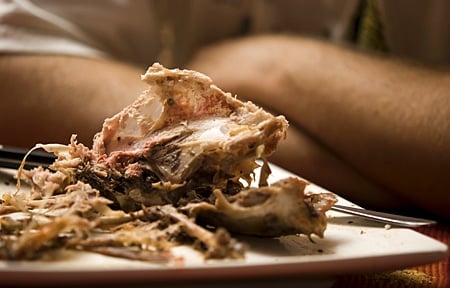
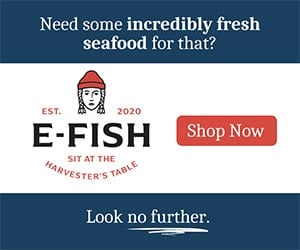
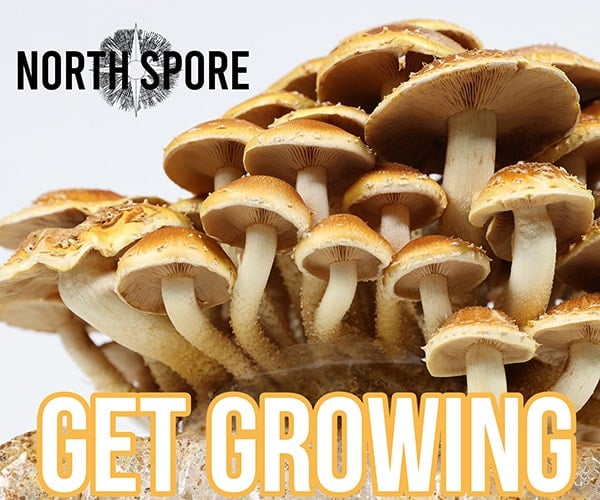
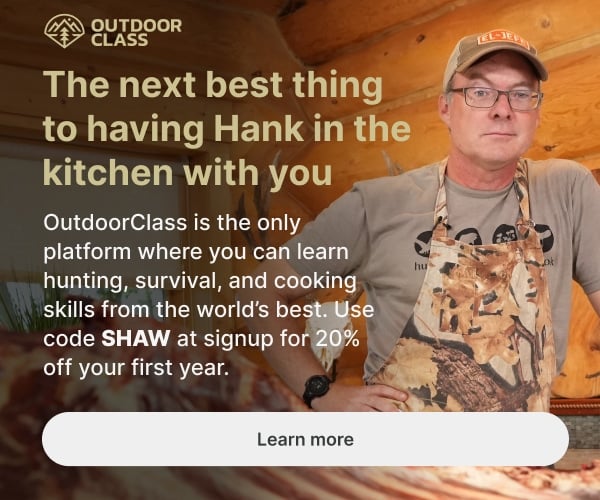
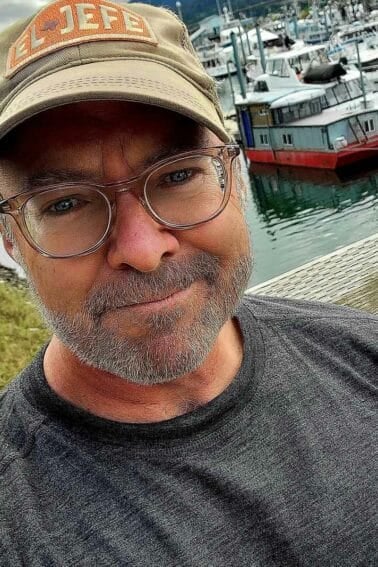
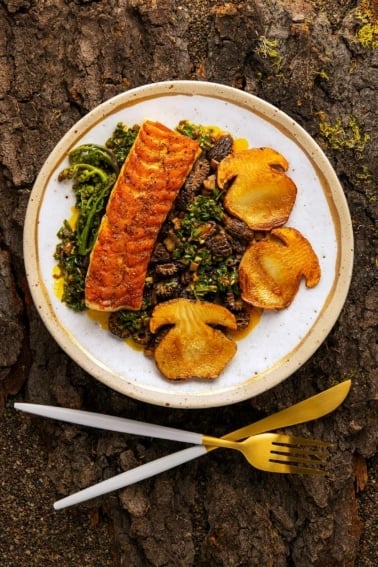
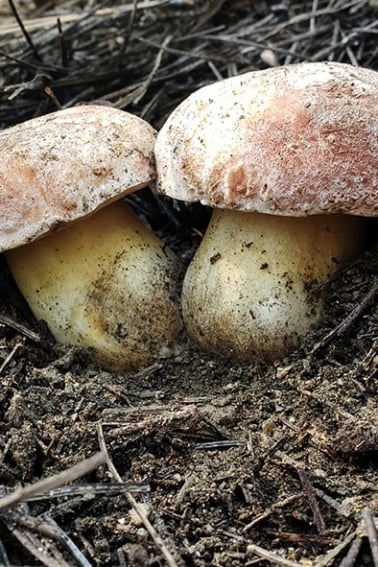
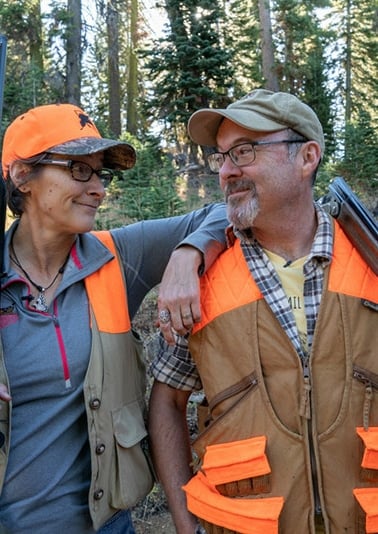
I appreciate what you do about not wasting anything, but no meat is necessary. I disagree with any killing at all. Hunting is a terrible “sport”, that requires hardly any skill. Why not just shoot at a range, and have pretend animals that move back and forth? No killing is justifiable. To me, this is the same as a cannibal killing another human (it is, actually, the same EXACT thing), and using all the body parts for their meals.
While I also appreciate your point of view, I would hotly dispute your assertion that hunting requires “hardly any skill.” That simply isn’t the case if you are hunting truly wild animals. To say so is to both overestimate our human abilities and grossly underestimate those of the animals we pursue. ~Hank
Thank you for this articulate and thoughtful post. I’m vegan and have never hunted but it’s interesting to learn the hunter’s point of view. It’s not one I share or even fathom, but this is good information. Thanks again, best wishes.
Nice idea but unsustainible.
This was an exceptional post, Hank, and will stay with me for some time.
Thank you.
“I have nothing against vegetarians, and the vast majority I’ve met understand what I do and respect it. But to those few who do not, I say this: We all have blood on our hands, only I can see mine.”
You’re right that no diet is cruelty-free, and any vegetarians who think otherwise are simply deluding themselves. The difference, however, is that those vegetarians are making food choices that greatly minimize unnecessary suffering and death. You, by contrast, are actively *causing* unnecessary suffering and death. Yes, we may all have blood on our hands, but only some of us actively bathe in it.
“I am at peace with killing my own meat because for me, every duck breast, every boar tongue, every deer heart is a story, not of conquest, but of communion.”
Communion involves both parties sharing in a mental or emotional experience. So unless you’re terrorized and have the life brutally crushed out of you every time you go hunting, then I’m sorry – but you aren’t “communing” at all. You’re victimizing.
The key word here is “unnecessary.” What is unnecessary in your eyes is a vital part of life to me. All animals kill to live. It is the paradox of our existence. And I would dispute your characterization of a vegetarian diet as “greatly minimizing animal suffering and death,” especially when you consider that the leading cause of animal extinction is habitat loss — and that most habitat loss is caused by people clearing land for crops. But, to each his own. ~Hank
Ya know, I grew up in Los Angeles and my first boyfriend was a hunter. We both worked for a vet for years. He was a hunter too. Hunting always meant respecting the animal to me. To take the time to hunt means a more personal connection and respect for what you eat. I was honored to be present at the slaughter of the pig I bought (320lbs) raised by Neil Foley with love. I was thrilled to meet you at Farmstead in RI. You are a natural born teacher. Beautiful post Hank.
Hank,
Bravo, and thanks for writing this on behalf of all of us. I’ve read a lot of your writings and this is the best. I’m proud of you….
Outstanding in all regards. Thanks for putting down in words what I feel every time I hunt.
Well said. I still remember the first deer I shot. I was 15 and I took it down with a bow, it took two arrows. I remember not being able to sleep that night, both with thoughts of those seconds between arrows when the deer suffered and with elation over the fact that I, a girl at 15 was able to help provide meat for my family.
The part I get the most here, as a hunter, is your feeling around the time of the kill. The instinctual adrenaline is perhaps a coping mechanism to make us ignore logic and get the job done. It’s certainly a mixed bag of emotions just around the kill, and one that I wish more meat-eating folks would know about.
I never understood vegetarians until I killed my first big game animal. Birds don’t strike me [although I know what you mean about ducks], but the big game animals impact me.
Well-wrought words, Hank. It brings to mind “The Fish”, by Mary Oliver… and also my own experiences in the wild. Heck, I feel bad pulling weeds; how can I shoot something? And yet, I can most definitely shoot something.
Or, at least, I can shoot at something.
I LOVE your post. I wont say that i am a hunter because i am from a caribbean country that does not have deer, or wild boar or game. But i drew up with a grandmother and aunts and uncles who raised pigs and goats and they were mainly for food. I am one perso appreciates where my food originates. I can raise a pig, and kill it and eat it (sorry for being so crude), it doesnt put me off in the least. But i would treat that animal with respect. Because it will have free range or motion, be properly fed and watered. EVERY PART of that animal will be eaten. I grew up fishing in the ocean, diving for lobsters, raising chickens for eggs and to eat. I was raised on ground food, fresh products.
I find your blog very inspiring and very enjoyable to read simply because I can see that you respect your skill and also have great respect for the animal.
Thank you, Hank. Reading your eloquent piece makes me almost want to try hunting for myself instead of just enjoying the results when a hunter friend is willing to share. (Unfortunately I think my poor depth perception might make it an exercise in frustration!)
Hank, this should be published in magazines to get the word out. Thanks for your words.
I am glad to have read this. This is how I wish I could explain why my husband and I hunt to some of my nonhunter friends and family. I stared hunting in 2010. I’ve only had the blessed opportunity to take pheasants and I was very proud of those and honored them by cooking them well. I have hunted for boar and deer with no success yet but I can relate to your comment about wrestling your concsious mind about deer fever. I’ve gotton that alot while hunting for boar, darn those rocks playing tricks on me! 🙂 I also have to say about taking game is that I love being able to get really close to an animal and see it and touch it, I would not be able to see what makes up a pheasant if I had I not hunted it.
“we all have blood on our hands, only I can see mine” Well said Hank. Thank you.
Not much I can add that hasn’t been said already but what a fantastic piece of writing.
I grew up with a dad that fished. Loved fishing, so now I love fishing. I remember pulling up Crapie by the dozen and pan frying them for breakfast, lunch, and dinner. I remember reeling in that first 30lb salmon, my arms pulsing and burning from a long fight. I remember so many good times that are now story and lore in our family, and I am so grateful for that. For some reason though, my dad, even growing up with his dad who hunted, well, he never took to it. Unfortunately for me, this meant I didn’t grow up hunting.
That being said, I’ve always wanted to hunt. I completed my hunter’s safety ed course at 12 years old, and then we promptly moved, and moved, and moved once again. The certificate was tussled around and lost in a couch, maybe in New Jersey, maybe Florida, but the desire to get out there and hunt game never vanished. Unfortunately hunting is one of those things that’s intimidating and difficult to just pick up (maybe rightly so). You need licenses, you need to know your quarry, the right ammo, the right clothing, and a place to actually hunt. But after years of wondering what is like to drop a duck at 30 yards, or flush a covey of quail with your best pal going to retrieve them, I finally know.
I got my license at 34 years old last fall. Picked up a nice Over/Under (which I found out is way too nice to take to the duck blind over brackish water), a bag of decoys, and a few calls. I hunted alone for most of last year. It was everything I thought it would be. I knew it would be before I hunted (but hey, you’re reading from a guy that sailed a 26 foot boat 4000 miles to Mexico and back with no experience but that from what was taken from books).
Of all the hurdles in this whole process, taking life (and dealing with it) was the most difficult thing to get over. I remember that first Bluebill I downed. I remember taking it home and plucking it; pulling out the guts and having blood all over my hands. “Ugg, what’s that smell!” Intestines have a way of waking you up at anytime of the day. But as I slowly worked over the bird, as the feathers were plucked and the skin shown itself, it transformed into something you see behind the butcher’s glass, and then, I didn’t feel so bad. I was doing the whole deed, and when I consumed the bird later that night – damn did it taste good – it tasted good because I earned the whole thing.
I still feel bad looking at a table of dead ducks in all their regal glory, but hunting and killing is something that man has done for survival and proliferation throughout his history. We wouldn’t be here if we didn’t eat meat. I’m at peace with it. For me, it’s a source of meditation, simplicity, and being in touch with a world that is real, and I can’t wait to continue the story with my children someday.
I thought this was wonderful. I recently did a stage for an family charcuterie company here in Austin. I learned to butcher a pig by doing it on one they raised and that I had met. It was a humbling experience and brought home to me the need to be honest about, and aware of my food sources.
I find very interesting your use of the word communion. Both that and your essay content brought to mind a short article in this quarter’s Gastonomica by Christopher Mohar. It is located in the ‘ the hunt’ section titled just that : Communion. It relates his experience as a boy, hunting., with much of the same emotions you do.What he concludes with is that due to place and circumstance he no longer hunts, and because of that; he no longer eats meat. Except when he goes home, where his father cooks the meat he has killed. Mohar does not feel in the least guilty for this, rather what he would feel guilty for was eating an animal he had not shown the respect of killing himself.
I wish I had your courage;I do not.
Well said. You have captured my feelings in words. As I wander the prairie in search of truly free range meat, there is only one thing that can put a damper on a day, a wounded animal that escapes.
This is a fabulous article, and really nails the love and respect for nature that good hunters have–something my non-hunting colleagues just don’t “get”. Thank you.